Sprouts are more than just an easy-to-grow snack; they are an incredibly nutritious powerhouse packed with vitamins, minerals, and antioxidants.
These tiny plants offer many health benefits, from boosting your immune system to supporting digestion.
The best part? You can easily grow them right in your kitchen without any special equipment.
#1. Rich in Nutrients for a Healthy Body
Sprouts are packed with vitamins, minerals, and antioxidants. For example, just 100 grams of alfalfa sprouts provide a significant amount of Vitamin K, Vitamin C, folate, and fiber.
Studies have shown that sprouting seeds increases the bioavailability of these nutrients, making them easier for the body to absorb.
Additionally, the sprouting process breaks down the phytic acid that normally inhibits nutrient absorption, thus enhancing the nutritional value of these tiny plants.
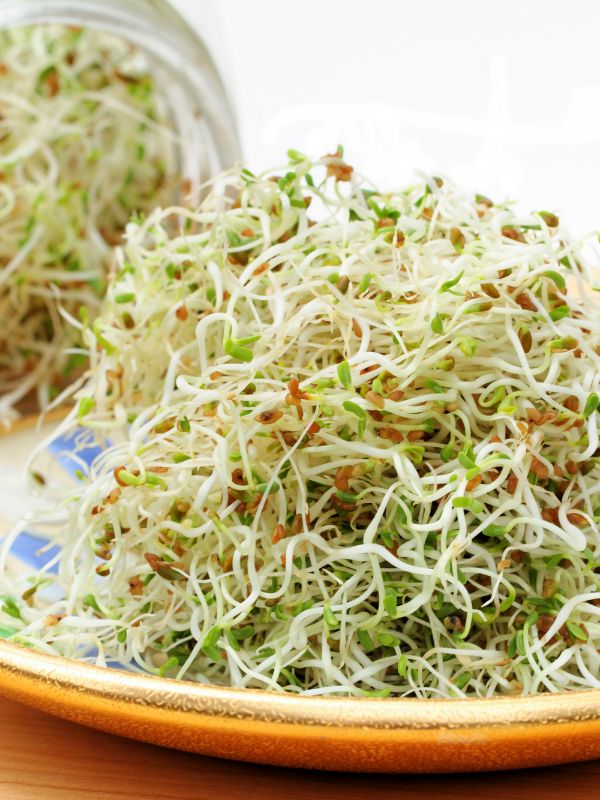
#2. Promotes Healthy Digestion
The high fiber content in sprouts plays a key role in digestive health. Fiber is essential for promoting regular bowel movements, preventing constipation, and supporting a healthy gut microbiome.
Moreover, sprouts contain digestive enzymes that aid in the breakdown of food, making it easier for the body to absorb nutrients.
#3. Boosts Immune Function
Sprouts, particularly broccoli and alfalfa, are rich in antioxidants like Vitamin C and flavonoids, which support the immune system.
These antioxidants help to neutralize harmful free radicals, which can weaken the body’s defenses against infections and diseases.
The antibacterial and antiviral properties of sprouts are also well-documented. Studies have shown that certain types of sprouts, such as mustard and radish, can help combat infections and promote better immune function.

#4. Supports Heart Health
Sprouts are heart-healthy due to their high fiber content, antioxidants, and essential fatty acids. For instance, the omega-3 fatty acids in certain sprouts, such as flax or chia, help to reduce inflammation and lower cholesterol levels.
Furthermore, sprouts like broccoli and lentils have been shown to support cardiovascular health by reducing the risk of heart disease. Regular consumption of sprouts can help keep your heart strong and healthy.
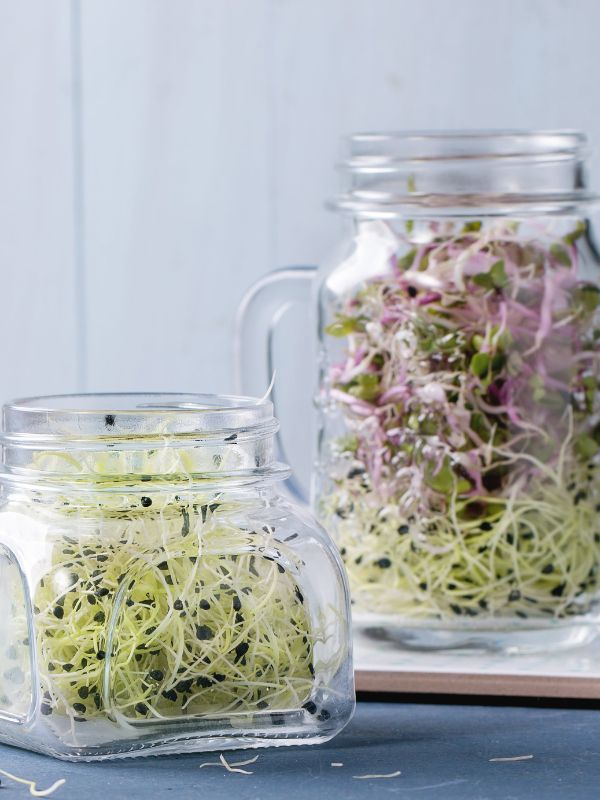
#5. Helps Regulate Blood Sugar Levels
Sprouts, especially those made from beans or lentils, can help regulate blood sugar levels. The soluble fiber in these sprouts slows the absorption of sugar into the bloodstream, preventing sudden spikes and crashes in blood sugar.
Additionally, sprouts such as mung beans have been found to improve insulin sensitivity, making them beneficial for people with diabetes or anyone looking to stabilize their blood sugar levels.

#6. Aids in Weight Loss
Sprouts are low in calories but high in fiber and water content, making them an ideal food for those looking to lose weight. The fiber in sprouts helps to keep you full longer, reducing overall calorie intake.
Incorporating sprouts into your meals can also boost metabolism, as the antioxidants and enzymes promote the breakdown of fat and improve overall digestion. These tiny powerhouses can be a great addition to any weight-loss plan.
#7. Supports Healthy Skin
Thanks to their high antioxidant content, sprouts can promote healthy and glowing skin. Vitamin C, found abundantly in sprouts like alfalfa and broccoli, is essential for collagen production, which helps keep skin firm and youthful.
Additionally, the anti-inflammatory properties of sprouts help reduce acne, irritation, and other skin conditions. Sprouts can also help prevent the signs of aging by fighting free radicals and promoting skin regeneration.

#8. Detoxifies the Body
According to a study in the Journal of Environmental Toxicology and Pharmacology (2014), sulforaphane from broccoli sprouts enhances liver detoxification.
The enzymes and antioxidants in sprouts play a key role in neutralizing harmful substances.
Consuming sprouts regularly can help reduce the burden on your liver, boost its function, and improve your body’s ability to eliminate waste efficiently.
#9. Improves Mental Clarity and Focus
Certain sprouts, such as those from sunflower seeds, are known to support cognitive function. They contain nutrients like B vitamins, essential for maintaining brain health and improving memory.
Sprouts can also help enhance focus and mental clarity. The antioxidants in sprouts protect the brain from oxidative stress, which can cause cognitive decline and help improve overall brain function.

#10. Rich in Protein for Muscle Growth
Sprouts, especially those from legumes like chickpeas and lentils, are a great source of plant-based protein.
Protein is essential for muscle growth and repair, making sprouts an excellent food choice for anyone looking to build or maintain muscle mass.
Furthermore, the amino acids in sprouts support the production of hormones and enzymes that regulate metabolism, immunity, and tissue repair.

How to Make Sprouts at Home
Sprouting seeds at home is easy and requires minimal equipment. All you need is a wide-mouth mason jar, some seeds, and water. Here’s how to make sprouts:
- Soak the seeds: Start by soaking your seeds in non-chlorinated water for about 6-12 hours, depending on the type of seed.
- Drain and rinse: After soaking, drain the water and rinse the seeds. Place the jar at a slight angle to ensure the water drains completely.
- Rinse and repeat: Rinse the seeds 2-3 times a day for 3-5 days, depending on the type of seed, until they’re ready to eat.
- Harvest and enjoy: Once the sprouts have grown to your desired size, rinse them one last time and store them in the refrigerator for up to a week.
You can use any sprouting seeds you like, such as alfalfa, broccoli, or lentils. Be sure to store your sprouts in a clean, dry place to prevent contamination.
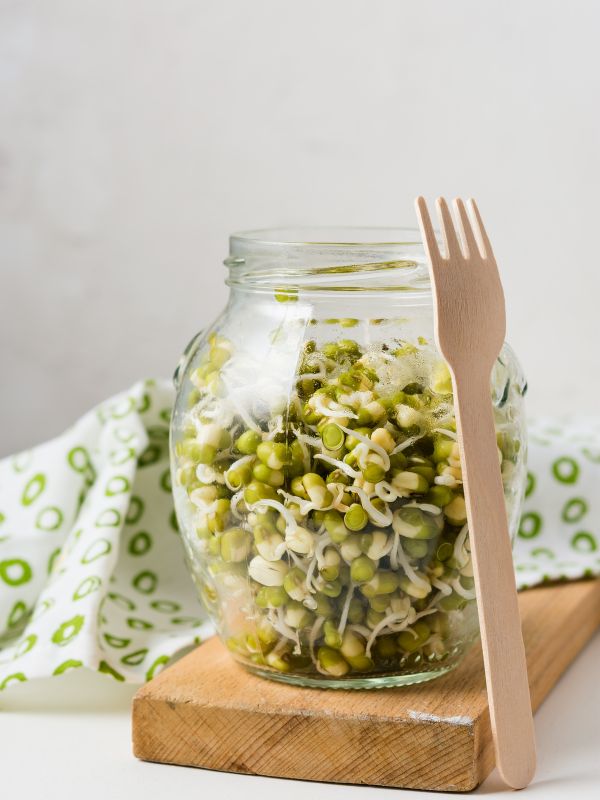
How to Incorporate Sprouts into Your Diet
- Sprouted sandwiches and wraps: Add a handful of sprouts to your sandwiches, wraps, and burgers for a healthy crunch.
- Salads: Toss sprouts into salads for added texture, flavor, and nutrients.
- Smoothies: Blend sprouts like alfalfa or broccoli into smoothies for a nutrient boost.
- Soups and stir-fries: Sprouts can be added to soups, stir-fries, and stews, either at the end of cooking or used as a garnish.
- Sprouted legume hummus: Make hummus using sprouted chickpeas or lentils for a fresh take on this popular dip.
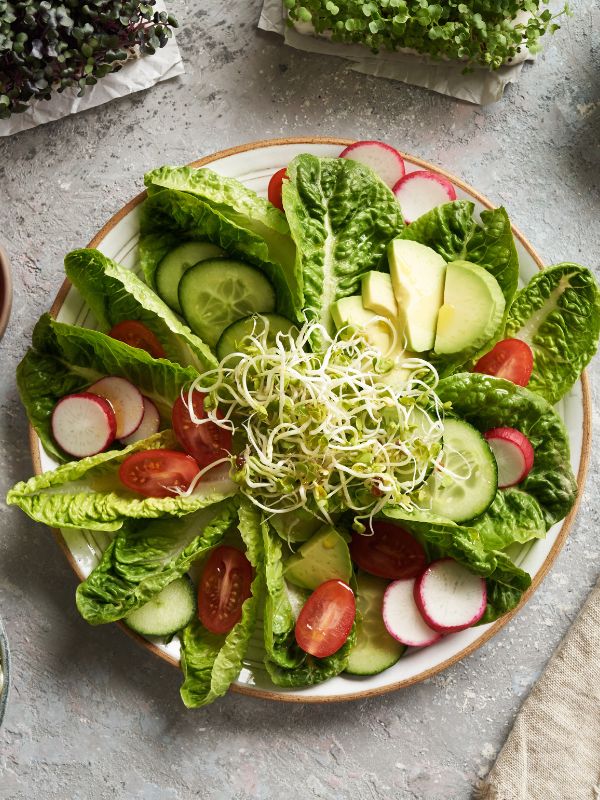
Disclaimer
The information provided in this article is for educational purposes only and is not intended to replace professional medical advice.
Always consult a healthcare provider before making significant changes to your diet or lifestyle.
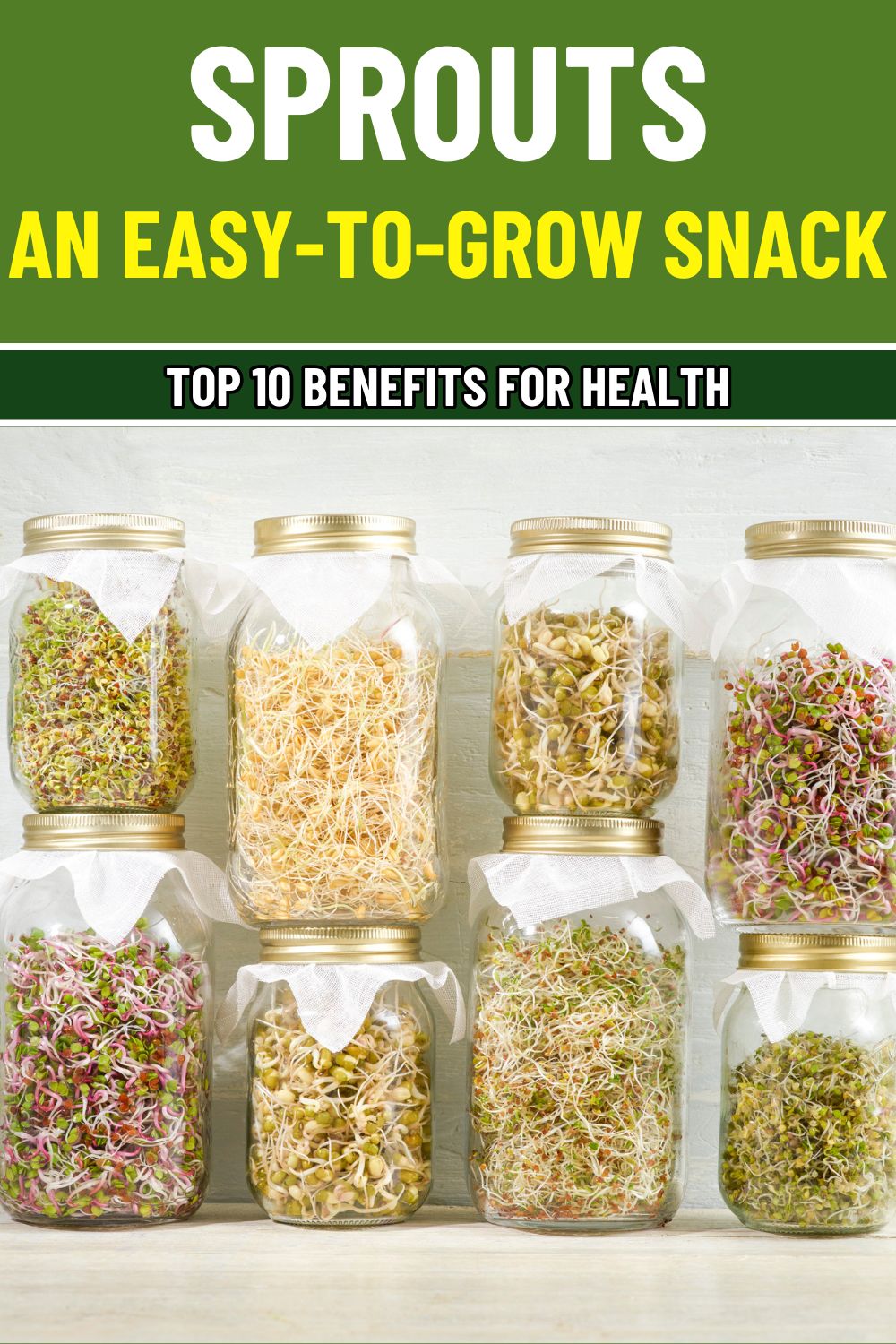
10 Surprising Health Benefits of Sprouts and How to Grow Them at Home
